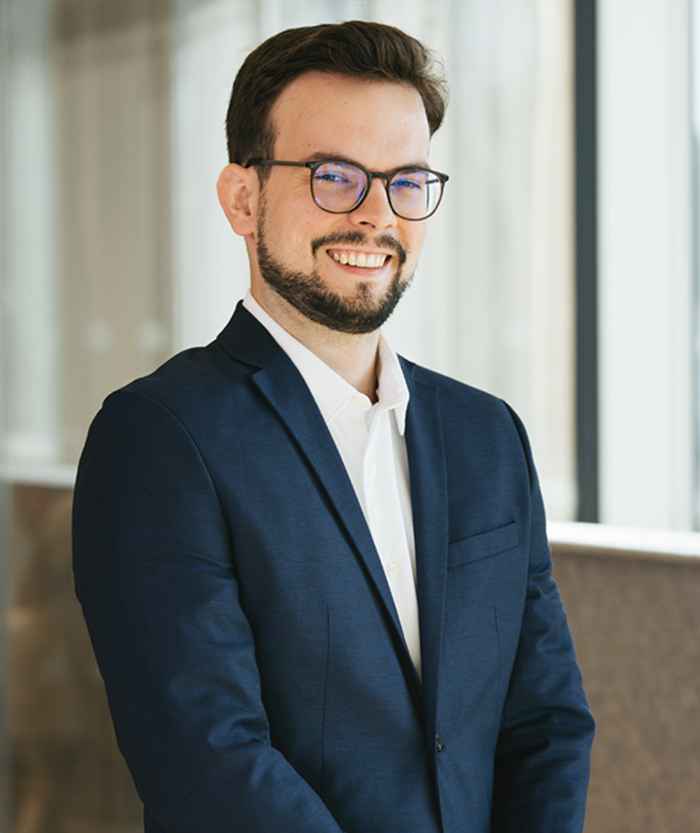Bence Dallos (BCs: Chemistry)
The chance to obtain in-depth knowledge on the fundamental concepts governing forensic science in the first year, combined with the opportunity to later specialise into a preferred area within science made me eager to apply to the programme. Most certainly, the interdisciplinary nature of the study; the chance to work with course mates from different academic backgrounds was the highlight of the Master’s. Tackling forensic problems together by merging ideas from different perspectives, made working on cases a truly rewarding experience.
My favorite courses that really made an impact on me during the Master’s were: Criminal Law and Expert Evidence and Chemical Analysis for Forensic Evidence. Being inherently interested in the law side encompassing forensic science, I found the Criminal Law and Expert Evidence course greatly valuable. Having had the chance to learn in-depth about the different legal systems and concepts governing various countries was really intriguing. On the other hand, The Chemical Analysis for Forensic Evidence specialisation course tied together the fundamental concepts of forensic science in a chemistry context, and taught us to think critically about the different spectroscopic techniques that are applied in the interpretation of chemical evidence from a crime scene. I could not recommend this course enough for chemists looking to specialise into forensic chemistry later on in their career.

After finishing the Master’s, I joined the Dutch office of a British patent and trademark law firm, as a Trainee Patent Attorney. On a daily basis, I help prosecute patent applications within chemistry for some of the most impactful innovators of the world. Similarly to the field of forensics, working with patents also requires an interdisciplinary mindset: we work on a daily basis on the intersection of laws governing patent applications and science. The Master’s greatly helped me to develop and nurture this mindset, which I still rely on during my everyday work. When responding to examiner objections in relation to a prosecuted patent, the attention to detail and the precise language of a letter to the patent office, are both of great importance. These are also skills that are emphasised during the Master’s when writing forensic reports and interpreting evidence.
My advice to current and prospective students would be to always help each other not only during group projects, but also with understanding lecture material. One of the biggest strengths of this Master’s is the chance to work in interdisciplinary teams. You will always be able to reach out to one of your course mates for help; someone will always know that answer. I would also recommend starting to build your network early on. If you’re interested in a specific area of forensics, don’t be afraid to approach lecturers or experts on this topic. Go to events that interest you throughout the year and talk to as many interesting people within the forensic domain as you can. This will also help you gain more insight into various forensic areas of expertise, and aid with deciding which area of the field you would like to specialise into.